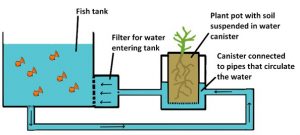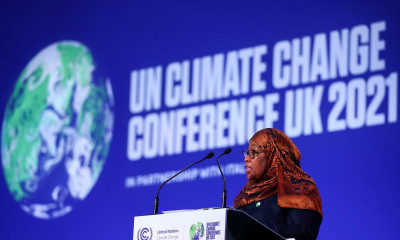
Most people think that agriculture is something big that doesn’t involve them, but on our journey, we discovered different ways that people can support food security in their own homes. By sharing these solutions, we can start to have an impact on the future of food security in South Africa.
One of the things we researched was aquaculture, where you breed fish and use the water to fertilise plants, which then filters the water and serves as a food source for the fish. Another is hydroponics, where you grow plants without using soil and instead just use nutrient-rich water. We also researched vermiculture, where you can compost food waste with worms. These are everyday implementations of agriculture that anyone can use in their homes quite simply. Some examples can be seen below:



We decided to implement some of these techniques in the Oranjezicht City Farm, a neighbourhood non-profit farming project. We planted spinach, potatoes, herbs and tomatoes and we also started a small hydroponics system. While it was not easy, it was a good example of how local communities can contribute to food security. For more information about our project, please read our research paper on Sustainable Agriculture and Food Security here.
We know that there may be challenges in implementing some of these strategies, such as poor soil quality, a lack of finances, or lack of knowledge on how to run certain systems. Personally, we ran into a number of difficulties. There was little accessible information on how to properly create and utilise a hydroponics system, as well as detailed steps on how to grow specific vegetables. As high school students, we had minimal knowledge on how to implement these techniques on the farm. We did, however, have the privilege of having a number of contacts, individuals as well as companies and organisations, who were able to guide us in our research and help us do implementation on the farm.
We know that not everyone has access to these resources – in South Africa, many people don’t even have access to the internet. Because of this, we think that the most important step is education in schools and homes. We need to make this knowledge available to even the most inaccessible people.
Youth make up 63% of South Africa’s population. If children can be made aware of the importance of small-scale agriculture and the affect that they can have on the environment and food security, the first step of our work is done. We, the youth, are seeds of success.
Whilst big international conferences are taking place, we can see that the role of local communities is just as important in securing a healthy environment that will continue to provide for us in the future.
We have many exciting plans including organising school marches for Climate Change awareness and starting green initiatives with our school’s grade 8s, helping to create new traditions and improve education about environmental matters. We can’t wait for the journey ahead!







